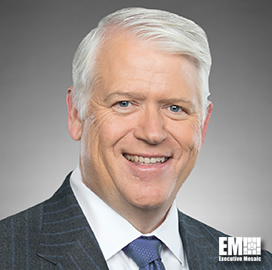Lockheed Martin exec Richard Ambrose, a six-time Wash100 Award winner, has announced he will be retiring from the company as executive vice president of the space business and moving on to preside on the board of directors of aerospace, defense and finance conglomerate Textron.
The Providence, Rhode Island-based company said Wednesday that Ambrose will begin his new position on April 1st after his retirement from Lockheed Martin, effective on March 1st.
“Richard’s extensive experience in the aerospace and defense industry and with U.S. Government defense programs will be invaluable to Textron,” said Scott Donnelly, Textron chairman and CEO.
Ambrose spent the last nine years helming the space business at Lockheed Martin, which entailed wielding a $12 billion budget and overseeing a staff of 22,000 people in its business transactions with national security, civil and commercial sector clientele.
Within the space department, Ambrose and his team contributed to NASA’s Orion, a spacecraft built for long-duration missions and deep-space exploration with human passengers. They also developed GOES weather satellites that aim to deliver more accurate forecasts.
He began at Lockheed in 2000 in the position of vice president and general manager of ground systems, before ascending to roles such as vice president and general manager of surveillance and navigation systems in the space division, as well as president of information systems and global solutions-national.
Before his time at Lockheed Martin, Ambrose served as president and general manager of space systems at Hughes Information Systems, which was eventually acquired by Raytheon C3I Systems.
Ambrose has served on boards prior to his appointment at Textron, including as a board of trustees member of the Denver Museum of Nature and Science, a chairman of the board of Sandia National Laboratories and a board member of the Space Foundation.
The executive’s addition to Textron’s board follows the company’s hire of Shannon Hines as senior vice president of government affairs and Washington operations in January.





